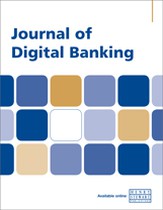Connecting the dots: Digital payments and financial inclusion in India
Abstract
The digital payment system is playing a crucial role in promoting the financial inclusion programme in India. The main objective of this paper is to analyse the present status of digital payment and financial inclusion in the country. The study, which is based on secondary data, finds that all items of digital payments such as real-time gross settlement (RTGS), retail electronic clearing, prepaid payment investment (PPIs), electronic funds transfer/national electronic funds transfer (EFT/NEFT), immediate payment service (IMPS), usage at point of service (PoS), debit cards, mobile banking, credit cards and a number of ATMs are increasingly being used in India. The performance of digital payment transactions and mobile wallet transactions has been improving. In addition, the performance of financial inclusion programmes indicates that the contribution of public sector banks in terms of the number of accounts opened, balance in accounts and number of RuPay cards issued was the highest in comparison with other banks in India. This study also highlights the major challenges faced by digital banking in the country. The overall performance of digital banking indicates that digital payment is an essential part of financial inclusion in India.
The full article is available to subscribers to the journal.
Author's Biography
Susanta Kumar Sethy is Assistant Professor of Economics at U.N. College (Degree), Odisha, India. He teaches Mathematical Methods for Economics, Statistics, Basic Econometrics and Macroeconomics. He is a PhD Research Scholar at the School of Economics, University of Hyderabad, India. Susanta has two master’s degrees, an MA (Economics) from the University of Hyderabad and a Master of Population Studies (MPS) from the International Institute for Population Studies (IIPS), Mumbai, India. He was awarded a gold medal by the University of Hyderabad in MA (Economics) and the Junior Research Fellowship by the Ministry of Social Justice and Empowerment, Government of India. He has also qualified in the UGC NET and eligibility test for lectureship in Economics. Susanta has published two books on financial inclusion and the Odisha economy. He has also published research papers in macro-monetary economics, inclusive finance and development economics in national and international journals. He has published 10 research papers in leading journals and edited books, including International Journal of Social Economics, The Indian Economic Journal, Theoretical and Applied Economics, Indian Journal of Economics and Business, Indian Journal of Economics and Development, Productivity Journal and Orissa Economic Journal. Susanta has also presented research papers in several national and international conferences.
